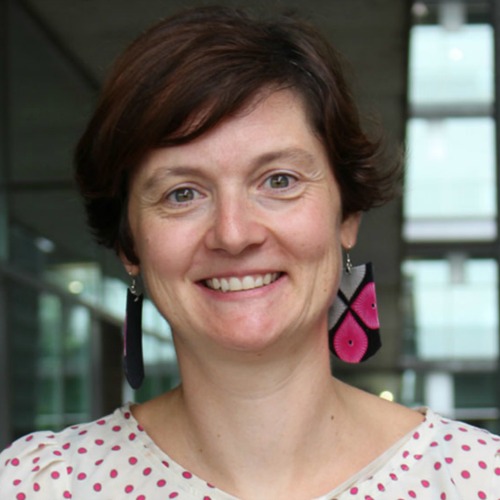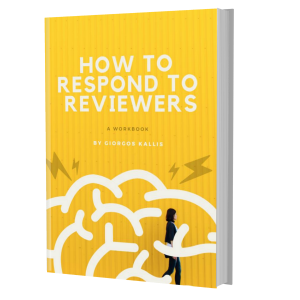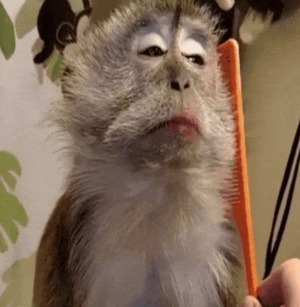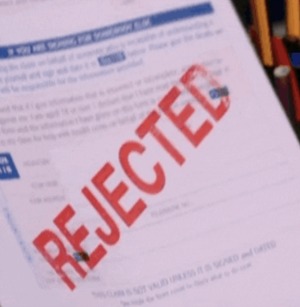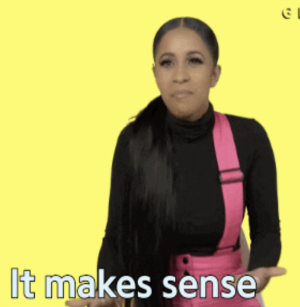How to survive the publication process as a young scholar – an Interview with Isabelle Anguelovski
Isabelle Anguelovski is an ICREA professor at my institute, ICTA, in Barcelona. Isabelle has a PhD in urban planning from M.I.T. and is recipient of a European Research Council starting grant to study how the greening of cities may cause gentrification. Isabelle is a young (and needless to say, very successful) academic at the beginning of her tenure, young enough to remember and sympathise with the grievances of PhD and post - doc researchers. We discussed about the writing and publishing process, their nice and not so nice moments.
GK: Isabelle, do you enjoy writing?
IA: I love writing! I find it a liberating, invigorating, and privileged exercise. Unfortunately, I find myself spending quite much more time than I had originally anticipated managing projects and their administration. Finding time to write on the research we conduct feels like a real gift– and a responsibility towards those thanks to whom I can write and with whom I write. I wish I had more time to write! I would like to have time to write also for online media, activist groups working on just city struggles, newspapers and more!
GK: I love parts of writing too. But there are parts of writing for a journal that can be very frustrating, no?
IA: Yes. I am frustrated too by the constraints of a journal article - the structure, length, and the type of academic work journals want. European academia seems to value articles so much more than academic books. Everyone is so obsessed with Impact Factors, quartiles, numbers of articles published per year. You often find yourself – even if you try hard not to –embedded in this mass-scale production process.
GK: You’ve published your PhD thesis as a monograph at MIT Press. Did you enjoy writing a book more than writing papers?
IA: Yes! It felt like a much less adversarial process than the evaluation and revision of a journal article. I also felt more free and original – both in form, content, and tone – rigorous, but more fun. It is true, however, that articles are published much faster. If I want to write a debate or opinion paper, it makes more sense to write it for a journal to get it accepted when it is still most relevant for the audience!
GK: Tell me about how you approach the writing of a paper. Do you start from the introduction and move forward, or do you have a different way?
IA: It really depends on the type of paper I write. If I write a traditional research paper with strong empirical results, I often start writing the results first, in order to build the argument and narrative I want to articulate. I already have in mind though which theoretical framework I want to use to anchor the paper and the original contribution I want to try to make. If I write a more theoretical or conceptual paper, I will more likely start with the Introduction, and develop it from there.
GK: Which is for you the hardest section in a paper?
IA: I hate the theory and literature review sections. I always feel I repeat myself building incrementally on the knowledge I had built for other papers. I also feel that it is hard to keep up with the papers that get published in my field, knowing that my “field” is quiet broad – ranging from urban sociology, critical geography, urban political economy, development studies, and of course environmental planning. There are also so many more papers published every year with new journals coming out, some applying much less scrutiny than others to publish papers, so it’s hard to keep up!
GK: I agree, but I don’t think it is necessary at the end to cover all the relevant literature. I see it more as a case of framing cleverly the best of the existing literature in a way that your research questions appear natural and original. Speaking of research questions are you always clear about your questions when you start writing a paper or do you find them as you write?
IA: Before I start a paper or even a field study, I always ALWAYS am driven by a research question. I think I was trained in a very rigorous way during my PhD, with an adviser – Joann Carmin – who kept hammering in us the importance of framing original research questions and to avoid “fishing expeditions.” This premise still very much guides me today.
That said, it is also true that as I analyse results, my research question tends to shift or get adjusted a bit, based on what emerge as the most salient and original results. It is an iterative process between the theoretical section of a research paper and the results section.
GK: Isabelle, you coordinate research projects with several researchers and you co-author papers with multiple authors from your lab. You all seem still pretty lovey dovey. What’s the secret?
IA: To have very clear from the beginning who will contribute what piece of the paper, who will be an author (under which conditions) and, of course, who will lead the paper – and make final decisions. This avoids disagreements and disappointments down the line, I think.
To also be open in selecting who will be included in a paper while not inviting everyone under the planet who has contributed to a piece of research to be an author! So, you have to be fair to the collaborators as well as to the paper.
GK: A lot of your time must be going to the management tasks of the several projects you are coordinating. How do you carve out time for writing?
IA: That is an excellent question! In the lab, we leave out 3-4 writing weeks every year, scattered through the months, where we focus on collective writing goals and tasks. That’s one good focused moment. I also tend to try to use Fridays for writing. All of us in the lab have agreed to have fewer emails and project tasks on Fridays. I also save some hours to write in the early morning before I get my kids up!
GK: I wrote a paper called ‘Friday off’, advocating a 4-day work week. But I really meant off, not off for writing! I guess for us academics having real time ‘off’ is becoming impossible as our evaluations become more and more competitive. Do you set goals for yourself on how many papers you have to publish or the journals you need to make it into?
IA: My answer is simple: NO. I think much more about the community I want to address rather than which Impact Factor of a journal. Impact Factors are not everything. I much prefer writing for a new or engaged journal, such as the Journal of Political Ecology - even if the Web of Science does not index it still- than say an indexed journal with a low impact factor.
I hear colleagues boast about the number of papers they publish. I don’t like this. They however do make me question myself at times, and my self-esteem, I won’t lie, especially so as a woman in academia. In my view, numbers don’t indicate quality. They indicate the increased importance given to statistics and to scores in an academic game where, overall, the quality of papers published has tended to go down over time.
GK: Does the pressure to publish stress you or do you enjoy ‘the game’?
IA: I love writing, but I don’t like the publication process. I find it demotivating, to say, the least, to have your writing being possibly misunderstood or taken down by anonymous reviewers, found at times after much desperation by Editors! I also find it depressing that we, as reviewers, have to do our work for free when journals make tons of money on papers they publish by charging huge fees to the readers.
GK: Sounds depressing. Any funny anecdote from your experiences with publishing?
I don’t think there is anything funny with the publishing process. That’s a bitter statement, I know!!
GK: Ok, point taken. Let’s stay serious then. What’s your nr 1 advice for writing novices at the beginning of their PhDs?
Write early. Write alone too, not only with your adviser. Don’t hesitate to put your research and ideas outside as a scholar with your own intellectual positioning and knowledge. But also carefully consider the writing advice from others around you – your adviser and beyond. Seek input from a lot of sources.
GK: Yes, especially from a very good website I came across, called howtowriteanacademicpaper.com, by one Giorgos Kallis.
IA: Funny, but let me please finish with my depressing advice. :)
GK: Haha, yes please.
IA: Care about what you write, be enthusiastic about your results and your contribution more than where you publish – especially so in the social sciences where the competition to publish in the highest Impact Factor journals does not exist to the same extent as in the medical sciences, for instance.
GK: Good point indeed. One more thing before we finish, Isabelle. You and other women from your group have shared your experiences of what it is like to be women in science and academia. In what ways can the writing and publishing process be different for women than men?
IA: Maybe we women don’t care as much about publishing in journals with the highest impact factors? Is this true, I wonder? We definitely care a lot about the collaborative and supportive elements of writing in groups (although many of my male colleagues at ICTA often have very collaborative and quite horizontal writing processes too). I feel also that we don’t walk around talking or asking others about the number of papers they write each year. These of course are my own observations and experiences - I haven’t run a survey on a random sample!
GK: Your observations sound reasonable to me and I am the only peer-reviewer on this website, so no worries for the lack of a survey. What would you advice women at the beginning of their PhDs and research careers?
IA: Don’t be afraid to share your ideas. Share your research output widely, and in a variety of mediums – conferences, workshops, summer schools, or social media. Create a Twitter account. Write for The Conversation, Vox or Jacobin. Try to reach out to more traditional media, like the Guardian, using the Communications Officer of your research center or help from your adviser. Do not be shy and build up your confidence over time by writing and presenting your work – and valuing it as a work in progress at different stages of your career.
GK: Thank you Isabelle.
Do you have additional questions for Isabelle? Leave your comments and suggestions below.





